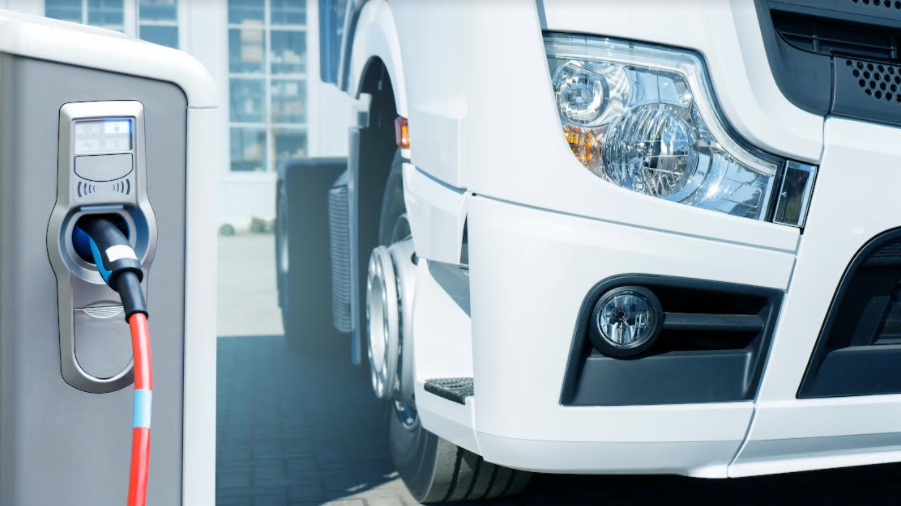San Francisco-based Forum Mobility provides heavy-duty fleet electrification programs to decarbonize fossil-fuel truck fleets. The startup recently secured $7.5 million in seed funding, which was co-led by Obvious Ventures and Homecoming Capital.
The news about electric vehicles typically focuses on EVs for consumers such as the Tesla models, the Ford Mach-E, Jaguar I-Pace, Chevy Bolt, Porsche Taycan, Audi e-tron, and so on. This news naturally generates more interest because most of us are not driving heavy-duty cargo trucks at ports, tractor trailers, or buses, but replacing very large diesel trucks with zero emissions vehicles is an essential piece of the sustainable transportation puzzle.
Heavy-duty diesel trucks used at ports to move cargo generate air pollution that is harmful to people and contributes to climate change. Replacing these vehicles with zero emissions trucks will improve unhealthy air quality in and around ports.
Matt LeDucq, Forum Mobility’s CEO, answered some questions about electrifying truck fleets at ports for CleanTechnica.
Why is it important to decarbonize ports?
Ports and their adjacent communities have some of the worst air quality in the United States. Additionally, the transition to electric zero emission vehicles will result in lower costs as well. We can clean up the communities and deliver goods at a lower cost over time.

Matt LeDucq
What are some of the most common health problems caused by port emissions in communities near ports?
A good article is here: “Expansion at the adjacent ports of Long Beach and Los Angeles, the largest port complex in the country, has resulted in an increasing contribution to the region’s air pollution. Air emissions from ships, yard equipment, railroads, and trucks account for about 10% of the daily particulate matter, 24% of nitrogen oxides, and 73% of the daily sulfur oxides in the entire Los Angeles air basin.”
A good report is here (PDF): “Nearly every item in our daily lives — our clothing, furniture, cleaning supplies, office supplies, electronics, food — was at some point transported across the world’s oceans onboard a container ship, as ap – proximately 90% of global trade is trans – ported on oceangoing vessels. (1) As a result, international shipping is a major green – house gas contributor, accounting for 3% of global emissions.”
What will you do with the latest funding round?
This funding round will allow us to staff up, get pilots on the road, and continue to refine and develop our products.
Who are, or will be your customers?
Our customers will run the gamut from independent operators to large fleets. We are committed to helping the smallest of fleets convert to electric zero emission economically.
Is it possible for ports to install their own solar power arrays to charge their own electric vehicles?
The power needed to electrify is massive and power at the ports will not be sufficient to electrify the movement of our goods. The scale of the undertaking is larger than anyone realizes.
Images provided by Forum Mobility.
Appreciate CleanTechnica’s originality? Consider becoming a CleanTechnica Member, Supporter, Technician, or Ambassador — or a patron on Patreon.

Credit: Source link






















